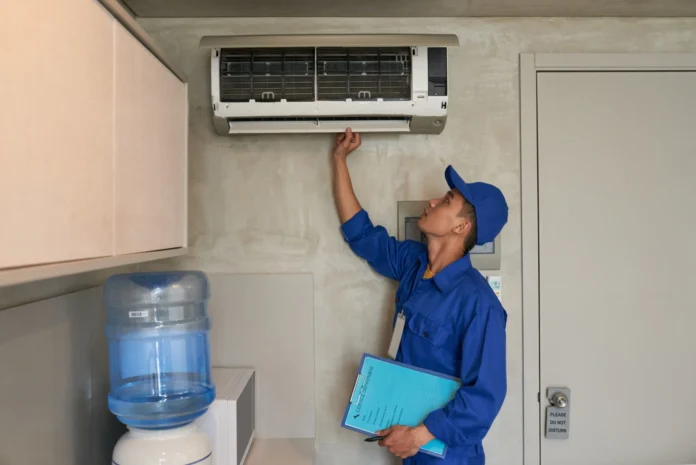Keeping your air conditioner functioning optimally is crucial, especially as temperatures rise during the summer. Even small lapses in upkeep can lead to costly repairs, inefficient cooling, and uncomfortable living spaces. Implementing a few easy maintenance habits will ensure your AC performs efficiently and lasts longer, while also helping to reduce costly energy bills. If you notice persistent issues or your system isn’t cooling as it should, professional AC repair might be necessary to restore maximum efficiency.
Neglecting basic maintenance can turn minor inconveniences into serious system breakdowns. Your air conditioner doesn’t just keep your home cool—it also improves indoor air quality and regulates humidity, both of which are crucial for comfort. Since preventative care is far more affordable than emergency fixes, making these habits routine can save you trouble in the hottest months.
Most homeowners can handle simple AC maintenance without special training, but scheduled inspections from certified technicians are a wise investment. Addressing problems early not only means fewer breakdowns, but also keeps your air conditioning unit operating as efficiently as possible. Across all climates, the same rules apply: a little effort now pays off with a comfortable, worry-free season.
Table of Contents
Schedule Regular Professional Maintenance
Annual or bi-annual inspections by a certified HVAC technician are among the best investments for smooth AC operation. A professional maintenance visit typically includes cleaning key components, inspecting electrical connections, checking refrigerant levels, and calibrating the thermostat.
Clean or Replace Air Filters Frequently
One of the simplest and most impactful AC maintenance tasks is keeping the air filter clean. When filters fill with dust, pollen, or debris, your system has to work much harder to push air through. According to This Old House, replacing disposable filters every one to three months and rinsing reusable filters according to your manufacturer’s guidelines keeps your air cleaner and your system healthy. This additional strain increases energy consumption, reduces airflow, and may even cause frozen coils or overheating.
Keep the Outdoor Unit Clear
The outdoor condenser unit plays a critical role in heat exchange, but it can’t do its job properly if it’s blocked by vegetation or debris. Regularly remove leaves, branches, grass clippings, and any accumulated dirt from around the unit. Clear at least 2 feet of space around it to allow adequate airflow. Bent or dirty fins should only be cleaned and straightened by a professional to prevent accidental damage.
Use Ceiling Fans to Assist Cooling
Strategic use of fans can help circulate cool air more efficiently, allowing you to set your thermostat a few degrees higher without sacrificing comfort. In the summer, ceiling fan blades should rotate counterclockwise to create a breeze that cools the room’s occupants directly. This approach can reduce AC load, lower humidity, and help you cut energy costs, according to experts at Consumer Reports. Fans can also improve indoor air quality by keeping air moving and preventing stagnant zones. Pairing fans with natural ventilation, such as opening windows during cooler parts of the day, further enhances energy savings and comfort.
Set Thermostat Wisely
A well-programmed thermostat helps ensure energy savings and consistent comfort. When you’re away or sleeping, adjust the temperature to reduce unneeded cooling cycles. Smart thermostats can learn your routine to optimize efficiency, and programmable models let you tailor schedules to your daily activities. According to the U.S. Department of Energy, adjusting your thermostat by 7–10°F for 8 hours a day can save up to 10% on annual energy costs. On very hot days, don’t be alarmed if your system runs longer than usual—focus on maintaining a gradual, evenly distributed temperature.
Insulate and Shade Your Home
Heat gain from sunlight makes your air conditioner work overtime. Minimize this by ensuring proper attic and wall insulation, weatherstripping windows and doors, and using thermal curtains or reflective window films. Even landscaping, such as planting shade trees or tall shrubs near sunny windows, can naturally buffer your home from external heat. Less heat coming in means less energy spent cooling, leading to a longer AC lifespan and added savings.
Monitor and Clear Drain Lines
Your AC’s drain lines carry away the moisture extracted from indoor air. When these lines become clogged with mold, algae, or dust, condensation can back up and cause water damage or system malfunctions. Inspect the drain pan regularly and clear the line using a stiff wire or a shop vacuum. If moisture remains around the indoor unit, consult a professional right away to prevent leaks and potential water damage.
Also Read : Creative Ways to Make Solar Energy More Affordable for Homeowners
Listen for Unusual Noises
Your air conditioner should run quietly, producing only a gentle hum. Clicking, rattling, buzzing, or screeching sounds often indicate loose parts, failing components, or obstructions. Take any new noises seriously and arrange for a prompt inspection. Early attention can prevent minor problems from escalating into major damage and expensive repairs.
Consistently following these simple yet critical maintenance steps ensures your cooling system performs at its peak year after year. With just a bit of regular attention and prompt intervention when needed, you can protect your investment, comfort, and peace of mind as you prepare your home for the hottest days ahead.
